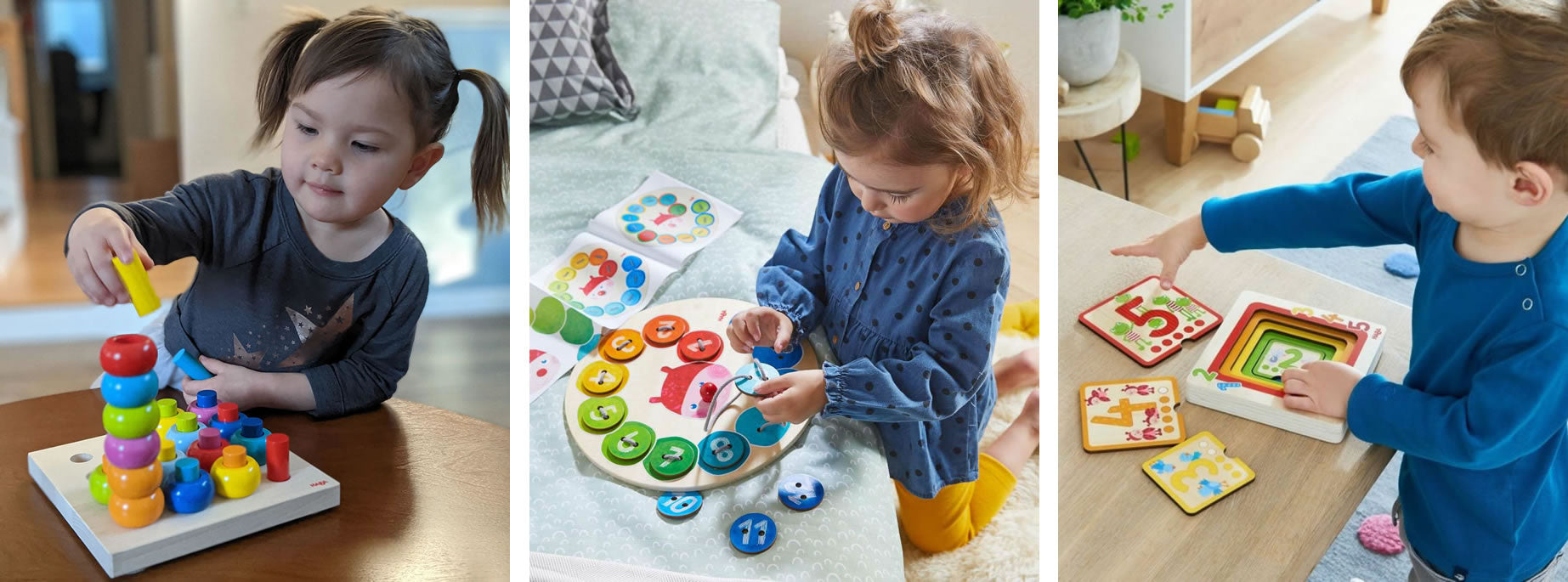It is fascinating to see how quickly toddlers’ minds advance in a matter
of only a few years. But what exactly is going on in their head when
deciding to randomly scream off the top of their lungs or climb a
dangerous-looking wall? Let’s explore…
Making Plans and Anticipating Consequences
To understand a toddler’s cognitive development, it’s helpful to begin a few months before they become toddlers. From seven months on, babies can consciously undertake certain tasks. They can decide to crawl across the room to their favorite toy or throw down a spoon on the floor. The same activities are replicated in various situations. Babies at this stage can also recognize their own name. They can make quite conscious sounds of their own. These are meaningful to them, and then become their first words. Around their first birthday, children are better able to judge what will happen when they decide to take certain actions. However, their lack of self-conscious or judgmental thinking cultivates new activities without fully thinking them through.
Developing and Training Their Ability to Concentrate
There's one thing toddlers need most of all for many of the big and small tasks in their daily lives – concentration. Retaining concentration for a period of time is not so easy, as younger children only have a fairly short attention span. It is very exhausting for them to concentrate on a specific process for long periods of time, but it is possible to train their ability to concentrate. Toddlers can concentrate on a single activity better in a quiet environment than in a noisy one. The best way to strengthen the ability to concentrate is with play, being outside in nature or performing small tasks within everyday family life. It is generally easier for children to concentrate on something if they are encouraged to do so with praise and if they see a purpose behind their task, like for example, setting the table!
How to Encourage a Toddler’s Cognitive Development:

Fostering cognitive skills with pegging games, stacking games & sorting games
With age-appropriate toys, it is possible for even toddlers to be able to spend a short period of time alone. A variety of pegging, stacking or sorting games are particularly suitable for this. They allow different forms to be recognized and assigned and, besides the ability to concentrate, this also trains fine motor skills and the understanding of colors.
Fostering cognitive skills with threading games
Threading games too are a wonderful way to practice logical thinking and concentration. Colorful motifs can be threaded one after the other or explored in free play.
Fostering cognitive skills with children's puzzles
Puzzles are often popular with children from a very early age. In the beginning, they try out simple gripping puzzles that show scenes from their everyday lives. Recognizing, naming and assigning can be excellently trained by this!






















Leave a comment